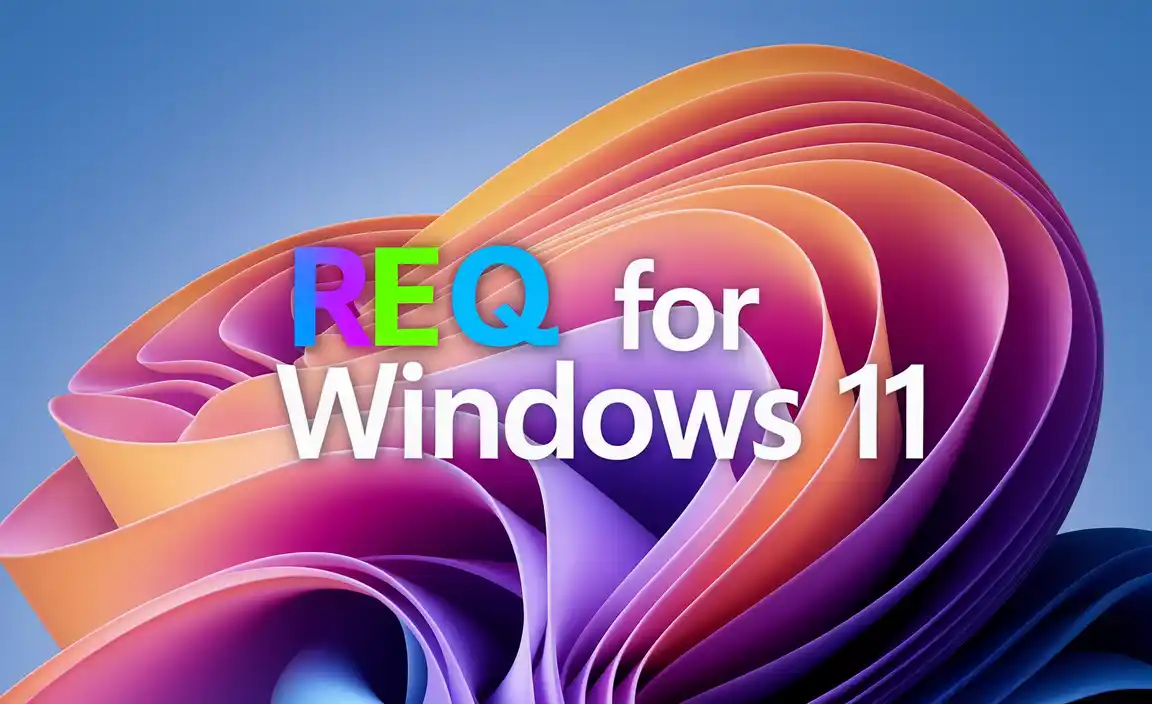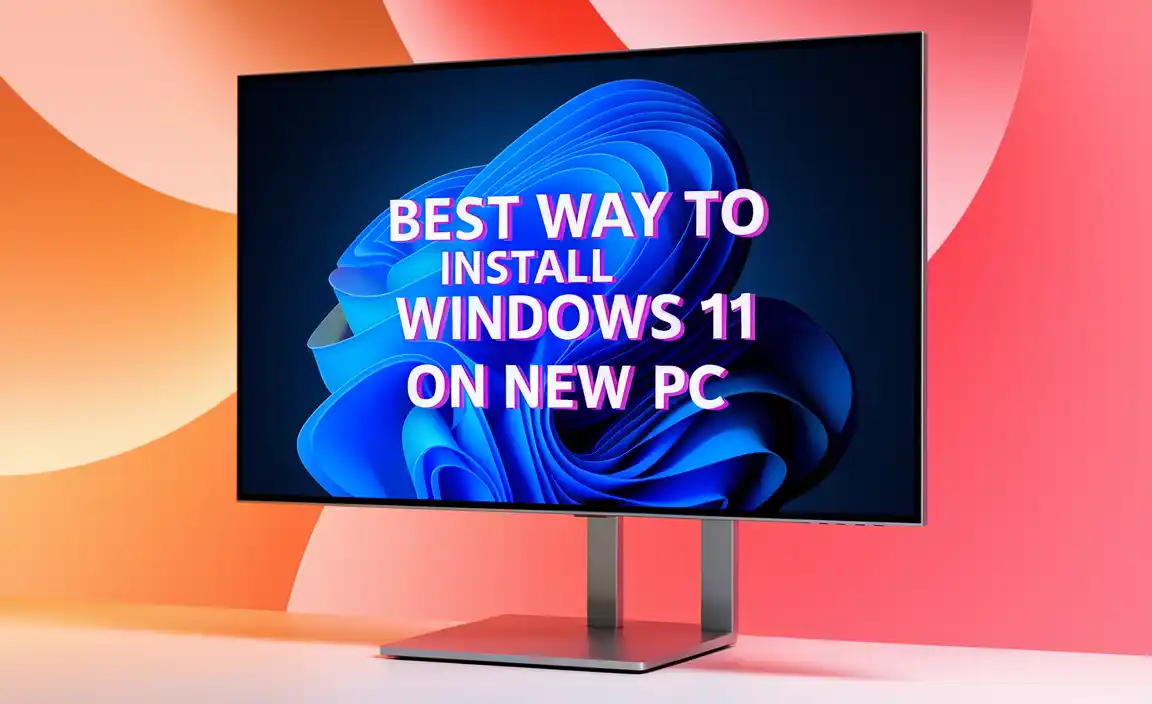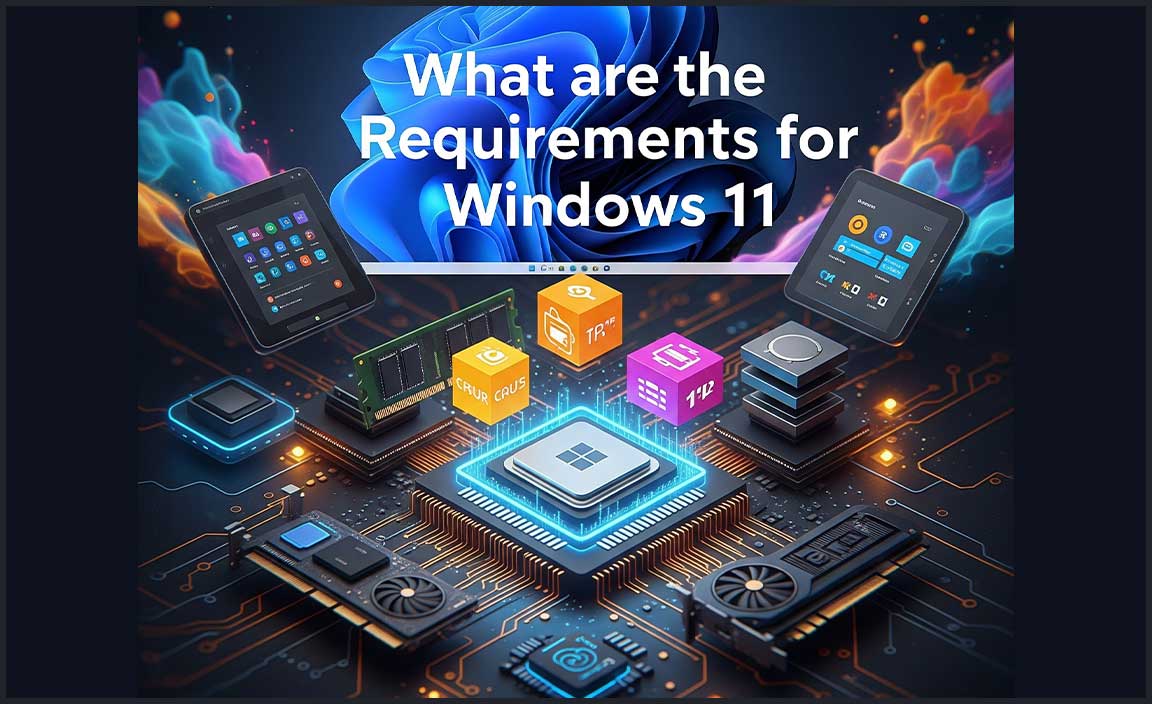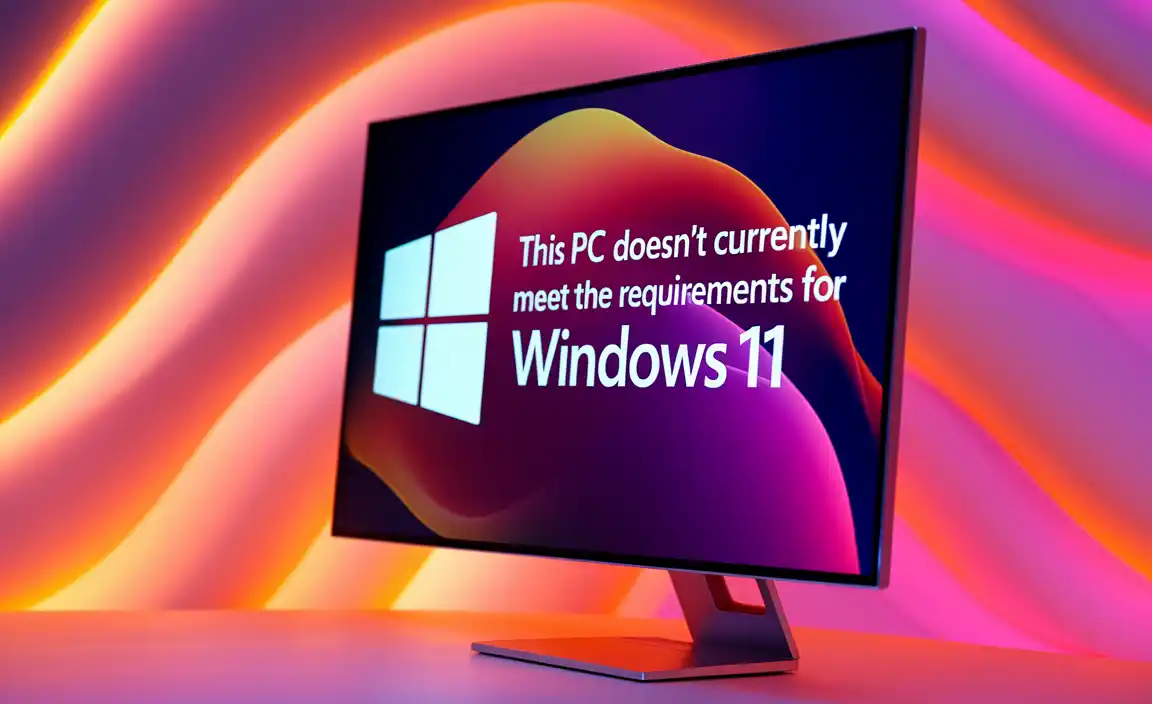Are you wondering if your PC can run Windows 11? You’re not alone! Many people are curious about their computer’s compatibility with this new operating system. The good news is that Microsoft has made it easier to check for Windows 11 compatibility.
Imagine trying to ride a bike, but the wheels just won’t fit. That’s how frustrating it can feel when you realize your computer isn’t ready for the upgrade. But don’t worry! With the right tools, you can find out if your device is up for the challenge.
Did you know that Windows 11 offers a fresh look and exciting new features? Just think about all the cool things you can do with it! But first, you need to ensure your system meets Microsoft’s requirements.
So, how do you check for Windows 11 compatibility? Let’s dive in and explore the simple steps you can take to find out if your PC is ready to go!
Microsoft Check For Windows 11 Compatibility: Everything You Need To Know

Microsoft Check for Windows 11 Compatibility

Are you wondering if your computer can run Windows 11? Microsoft offers a handy tool to check your system’s compatibility. This tool looks at your hardware, such as the CPU and memory, to see if they meet Windows 11’s requirements. It’s quick and simple! Did you know that some older PCs won’t qualify? This check helps save time and avoids frustration. Knowing your device’s status can guide your next tech upgrade!
Understanding Windows 11 System Requirements

Detailed breakdown of minimum and recommended system requirements.. Importance of hardware compatibility for optimal performance..
Before diving into Windows 11, let’s check if your hardware can keep up. The system wants some specific muscle power. Here’s a quick breakdown:
| Requirement | Minimum | Recommended |
|---|---|---|
| Processor | 1 GHz or faster, 2 or more cores | 3 GHz or faster, preferably multi-core |
| RAM | 4 GB | 8 GB or more |
| Storage | 64 GB or larger | 256 GB SSD for speedy performance |
| Graphics Card | DirectX 12 compatible | DirectX 12 with WDDM 2.0 driver |
Having the right gear is key for an awesome Windows 11 experience. Imagine trying to play tag in slow motion. You don’t want that! Good hardware = smooth sailing. So, if you’re unsure about your setup, check that compatibility first. It’s better to know than to be surprised later, right?
How to Use Microsoft’s PC Health Check Tool

Stepbystep guide on downloading and running the tool.. Explanation of results and what they mean for your system..
Looking to find out if your PC can handle Windows 11? First, grab Microsoft’s PC Health Check tool. You can download it from the official website. Simply click the link, and watch that download bar move like a snail on a lazy Sunday! Once it’s on your computer, install it and run the program. It’ll quickly check your system.
After a few moments, you’ll see results like a magic 8-ball! The tool tells you if your PC is good to go or needs some upgrades. Here’s what those results mean:
| Status | Description |
|---|---|
| Compatible | Your PC is ready for Windows 11! |
| Not Compatible | Your PC may need a few tweaks. |
Easy peasy, right? Just follow these steps to know your PC’s fate!
Software Compatibility Considerations

Explanation of software requirements, including applications and drivers.. Ways to check if critical software is compatible with Windows 11..
When using Windows 11, it’s important to check if your software is compatible. This means that the apps and drivers you use need to work well with the new system. Some software may need updates to run smoothly. Here’s how to check:
- Visit the software’s official website to see compatibility information.
- Use built-in tools like the Microsoft PC Health Check.
- Look for any updates or patches from the software provider.
By taking these steps, you can avoid problems with your programs and drivers when upgrading.
How do I know if my software will work with Windows 11?
You can check by visiting the software’s website or using the PC Health Check tool. These resources will help you find compatibility details quickly.
Alternatives for Upgrading to Windows 11
Options for users with incompatible hardware.. Exploring benefits of staying on Windows 10 versus upgrading..
If your hardware isn’t ready for Windows 11, don’t worry! You have options. Staying with Windows 10 can be great. It’s stable and still gets security updates until 2025. Plus, why change something that’s already comfortable? Think of Windows 10 as your favorite pair of sneakers: cozy and reliable. Meanwhile, some users may explore lightweight alternatives like Ubuntu or Linux. They’re funky and can breathe new life into older machines.
| Option | Benefits |
|---|---|
| Stay on Windows 10 | Stability and support until 2025 |
| Switch to Linux | Free and runs smoothly on older hardware |
| Upgrade hardware | Enjoy new features and improved performance |
Each option has its perks. So, whether you stick with the familiar or hop onto something new, you’ve got choices!
Frequently Asked Questions about Windows 11 Compatibility
Common queries and concerns regarding the upgrade process.. Clarifying misconceptions about system requirements..
Upgrading to Windows 11 raises many questions. People are curious about what their current systems can handle. Some think they need a supercomputer, but that’s not true! If your laptop can run Windows 10, it might just be ready for the upgrade. Here are some common questions:
| Question | Answer |
|---|---|
| Do I need a new PC? | No, most existing PCs are good to go! |
| What are the must-haves for Windows 11? | You’ll need a compatible processor, 4GB RAM, and 64GB storage. |
| Can I check my PC’s compatibility? | Yes! Use Microsoft’s PC Health Check tool! |
Remember, upgrading doesn’t have to be like building a rocket ship. Just check your specs, and you might be closer to Windows 11 than you think!
Conclusion
In conclusion, checking your PC for Windows 11 compatibility is essential. You can use Microsoft’s PC Health Check tool for easy verification. Remember, your device needs specific hardware to run it smoothly. If your PC isn’t compatible, consider upgrading or sticking with Windows 10. For more tips and updates, check Microsoft’s official website and stay informed!
FAQs
What Are The Minimum System Requirements For A Pc To Be Compatible With Windows 1
To use Windows 1, your computer needs a few basic things. First, you need at least 256 kilobytes of memory. That’s like having a small bag to hold your toys. You also need a floppy disk drive to load the software. Lastly, your computer should have a screen to see what you’re doing. If you have these, you’re ready to try Windows 1!
How Can I Use Microsoft’S Pc Health Check Tool To Determine If My Computer Supports Windows 1
To check if your computer can run Windows 11, you can use the PC Health Check tool. First, download the tool from Microsoft’s website. Next, open the tool and click the button that says “Check now.” It will tell you if your computer is ready for Windows 11. If it’s not ready, the tool will show you what to fix.
Are There Specific Hardware Features Required For Windows 1Such As Tpm 2.0 Or Secure Boot?
Yes, Windows needs some special hardware features to work well. One of these is TPM 2.0, which helps keep your information safe. It stands for Trusted Platform Module and protects your computer from threats. Another feature is Secure Boot, which makes sure only trusted software starts when you turn on your computer. We need these features for better security and a smoother experience.
What Steps Should I Take If My Device Fails The Compatibility Check For Windows 1
If your device fails the compatibility check for Windows 11, don’t worry! First, check if your device needs a newer processor or more memory. Next, you can visit the manufacturer’s website to see if there are updates available. If your device is still not compatible, consider getting a new computer that works with Windows 11. Lastly, you can keep using your current system with Windows 10 for now.
Can I Still Use Windows On A Device That Is Not Compatible With Windows 1And Until When Will It Be Supported?
If your device isn’t compatible with Windows 11, you can’t use it. Microsoft will support Windows 10 until October 14, 2025. After that, there won’t be updates or help for Windows 10. So, it’s a good idea to get a new device if you want to use the latest Windows.








